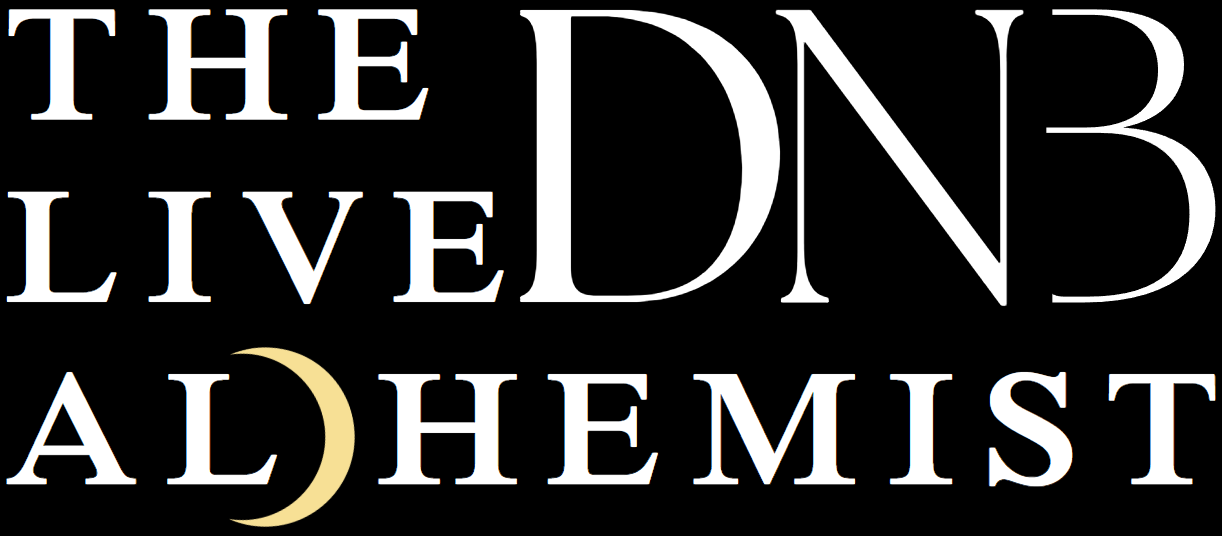Who Is Frederick Nietzsche?
Friedrich Nietzsche (pronounced NEE-chee) was a 19th-century German philosopher, poet, and cultural critic known for shaking the foundations of Western thought with a sledgehammer made of insight.
He’s the guy who famously said:
- “He who has a why to live can bear almost any how.”
- “Become who you are.”
But he’s not just shock and edge. At his core, Nietzsche was calling humanity to evolve—to move beyond victimhood, beyond herd mentality, beyond guilt-ridden morality systems.
He saw most people as slaves to social norms, religion, and shallow virtue.
He believed we were capable of more, of becoming what he called the Übermensch (Overman or Superman)
A human being who creates their own values, lives with radical authenticity, and embodies power without needing control over others.
Kinda Like That Jesus Guy we pray to....
Where is this going?
Nietzsche’s idea of sovereignty isn’t about political rule—it’s about the deepest form of personal mastery. Sovereignty, for him, is self-possession: the ability to command oneself, to will one’s path, to affirm one’s life without appeal to external validation, duty, or herd morality.
Now, most people aren't sovereign. Most people are reactive, fragile, and full of borrowed values. Nietzsche saw this as a sickness—a domesticated herd-animal version of man. But his goal? To create or evoke the kind of human who can stand like a god—free, disciplined, overflowing with power and beauty. This is the Übermensch, the "Overman."
And yes—he believed woman, in her highest form, could become a mirror or midwife to this. But not how modern ears want to hear it.
What About Sovereignty?
Sovereignty is when a man says yes to himself entirely—to his instincts, to his suffering, to his fate (amor fati). It’s when you are not ruled by guilt, fear, tradition, or the crowd. You don’t ask if you should. You will.
He writes in Genealogy of Morals about the sovereign individual as someone who has “the right to make promises.” That sounds polite. But it means something much deeper:
“This man possesses his own measure of value. He is answerable only to himself. His word binds because he has forged himself into someone who can bear consequences.”
What About The Ladies?
Here’s the jagged edge: Nietzsche did not see woman as sovereign in the same way—at least not in his time. He saw her as instinctive, creative, dangerous, life-affirming—but not yet disciplined like the sovereign man.
He wanted man to reach a level of sovereignty where he could meet the raw elemental power of woman without being broken or manipulated by her.
In Thus Spoke Zarathustra, he says:
“You are going to women? Do not forget the whip!”
This line is often misunderstood. It’s not about violence—it’s a metaphor for self-mastery in the presence of power.
Because woman, to Nietzsche, represented the primal forces of life: chaos, seduction, creativity, the body. She could overwhelm a weak man. But a sovereign man? He does not fear her or submit to her. He integrates her force.
Do you have an example?
Think of Odysseus and the Sirens.
The Sirens are irresistible. Their song pulls men to their death. But Odysseus doesn’t plug his ears like the others—he wants to hear. So he binds himself to the mast. He disciplines his desire. He confronts chaos without being consumed.
That’s Nietzsche’s sovereign.
He doesn’t flee woman.
He meets her.
He lets her test him.
And if he has mastered himself, he does not fall.
So are the Sirens bad, or are the men not able to control their desires?
What's your point?
Nietzsche didn’t want nice men.
He wanted dangerous men who had learned to control their fire.
He didn’t want submissive women.
He revered the wild feminine—instinctive, honest, powerful.
But what he most wanted was a man who could meet that wildness without flinching, without falling, without needing to dominate or to be dominated. @AdamW/oRib
That is sovereignty.
That is godhood.
You can’t be sovereign if you don’t know what’s lurking inside you.
Nietzsche pointed to sovereignty as total self-mastery.
Jung, decades later, filled in what Nietzsche hinted at but never systematized: you can’t master yourself until you face your Shadow—the unconscious, repressed, ugly, unwanted parts of you.
Rage, lust, envy, deceit.
All the instincts you pretend aren’t there.
Jesus knew this too.
That's why His harshest words weren’t for sinners, they were for the religious elites who wore masks of purity while hiding their rot.
Sovereignty is not cleanliness.
Sovereignty is integration.
What Is The Shadow?
Carl Jung said:
“Until you make the unconscious conscious, it will direct your life and you will call it fate.”
The Shadow is your unacknowledged self.
Every time you lie to stay liked,
Every time you avoid confrontation,
Every time you judge others for what you deny in yourself—that’s Shadow.
Jung wasn’t telling you to eliminate the Shadow.
He was telling you to integrate it.
To pull it from the basement and bring it under your command.
Why? Because unintegrated Shadow rules you from the dark.
With Shame, Guilt, Fear, Envy, Pride.... you know the drill.
Nietzsche’s sovereign man knows what darkness lives in him, but he doesn’t flinch.
He owns it.
He channels it.
It’s no longer a saboteur, it’s fuel.
Jesus: The Woes
Jesus didn’t say "woe" to prostitutes, thieves, or pagans.
Jesus's conviction is the integrated Shadow.
Live Conviction.

Couldn't agree more.
Bro said:
“Woe to you, teachers of the law and Pharisees, you hypocrites! You are like whitewashed tombs—beautiful on the outside but full of dead men’s bones.” (Matthew 23:27)
That’s the unintegrated Shadow.
He’s not condemning the sinner.
He’s condemning the faker. (Reminder To Buy Your Mugs)
The one who claims light but denies the darkness within.
Jesus didn’t just preach love. He didn't come with a scalpel.
He came with a sword.
He turned tables.
He bled.
He knew the cost of truth.
And He called out those who lived in borrowed righteousness.
Those who wanted the crown without the cross.
Light without heat.
Sovereignty without sacrifice.
The King and the Dragon (Please Remove From The Bible)
Imagine a king who keeps a dragon in the dungeon.
He doesn’t look at it.
He tells his people it doesn’t exist.
He rules in peace.
But one day the dragon escapes.
And it devours half the kingdom.
That’s the man who ignores his Shadow.
The man who says, “I would never do something like that.”
Until he does.
Until the pressure builds, and the dragon slips out when he's tired, angry, drunk, or afraid.
Now picture another king.
He feeds his dragon.
He trains it.
It obeys his command.
It’s terrifying—but it’s his ally.
That’s sovereignty.
That’s the Christ who descends into hell and takes the keys.
The King Within.
That’s the man who walks into the wildness of woman and does not crumble, because he already made peace with the wildness inside himself.
So What?
The Sovereign knows the devil within.
Jung's Shadow is Nietzsche’s chaos.
Jesus’s woes are warnings against pretending it's not there.
You want to be free?
Then face the part of you that could betray, destroy, manipulate, seduce, and bring it into the light.
You are not saved by denying it.
You are saved by mastering it.
Only then do you become what Nietzsche called “the one who can make promises.”
Only then do you stop being ruled—and begin to rule.
That is the King within,
not the man who pretends to be good,
but the man who has walked through the fire of his own hell,
wrestled the beast,
and come out with scars and authority.
That is Christ in all His glory, 4
not the sanitized Sunday school version,
but the Lion of Judah, who sweated blood, descended into death, and returned with the keys.
“I lay down my life of my own accord. I have authority to lay it down and authority to take it up again.” (John 10:18)
That’s sovereignty.
He doesn’t flinch from pain.
He doesn't beg for approval.
He doesn’t fear chaos,
He commands it.
And He never asks men to do what
He didn’t first do Himself.
Most want the crown.
Few endure the crucifixion.
Fewer still rise with resurrection power.
But that’s what it means to be King.
Not to dominate.
But to integrate.
To know the Shadow.
To master the flame.
To kneel only to Truth.
To walk like Christ, scarred, sovereign, and unshakable.
So the real question is this:
Are you still trying to look like a good man?
Or are you
becoming
a whole one?
“For the word of God is living and active, sharper than any double-edged sword, piercing to the division of soul and spirit… and discerning the thoughts and intentions of the heart.”
— Hebrews 4:12
“Waste no more time arguing what a good man should be. Be one.”
-- Marcus Aurelius
With Dragon,
Without Siren (Or Mug Commission)
Oh, yes. Married to myself, through integration.
Cheers,


